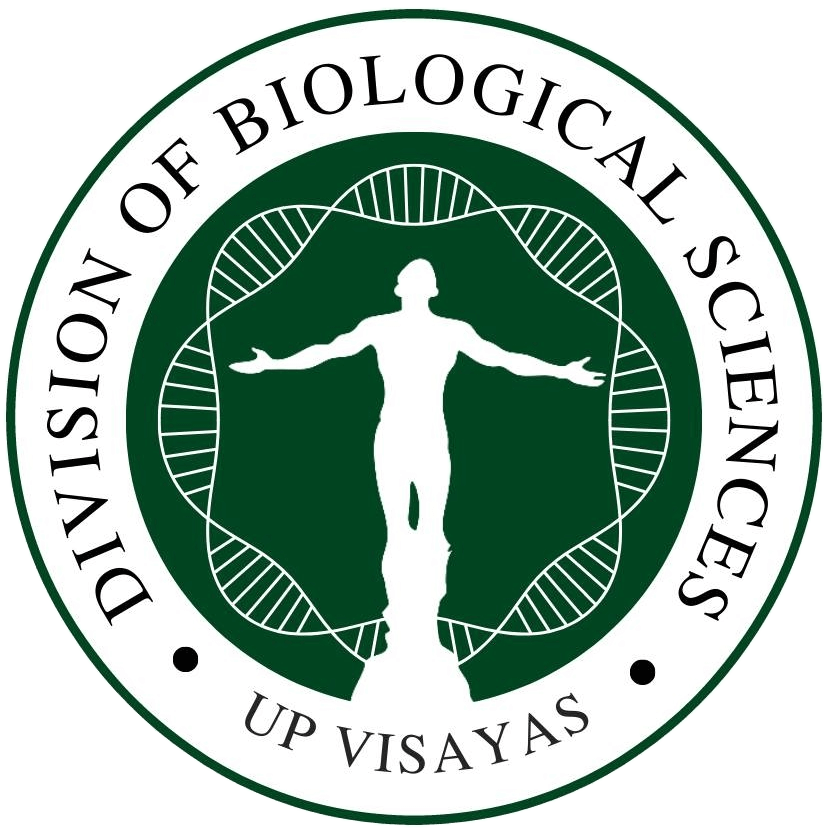MS IN BIOLOGY PROGRAM SPECIFICATIONS
I. AWARDING BODY
A. Constituent University: University of the Philippines Visayas
B. College: UPV Graduate School
II. DEGREE-GRANTING UNIT
A. Department/Division/Institute: Division of Biological Sciences
III. DEGREE PROGRAM TITLE
Master of Science in Biology (MS Biology)
IV. EXPECTED LEARNING OUTCOMES OF THE PROGRAMME
A. Constituent University: University of the Philippines Visayas
B. College: UPV Graduate School
II. DEGREE-GRANTING UNIT
A. Department/Division/Institute: Division of Biological Sciences
III. DEGREE PROGRAM TITLE
Master of Science in Biology (MS Biology)
IV. EXPECTED LEARNING OUTCOMES OF THE PROGRAMME
- Apply knowledge and skills in the field of basic and advanced biology.
- Analyze critically various concepts, theories, and other advances in biology.
- Integrate various disciplines in biology and other fields of science.
- Communicate effectively evidence-based science decision-making.
- Practice leadership in the field of scientific research ethics.
Applicants to the MS Biology program are expected to have adequate basic biology background – particularly in cell biology, physiology and ecology – as well as experience or exposure to scientific research. As such, admission to the program requires the following:
- a bachelor’s degree in Biology or related courses (Fisheries, Marine Biology, Environmental Science, etc.), but not Education, Nursing and others
- a clear statement of research intention (~1-page write up)
The following foundation courses in biology need to be taken up by MS Biology students in UPV:
| Required (Core) Courses (15.0 units) | |
|---|---|
| Bio 250 (Advanced Cell and Molecular Biology) | 3.0 |
| Bio 221 (Advanced Plant and Animal Physiology) | 3.0 |
| Bio 260 (Advanced Ecology) | 3.0 |
| Bio 298 (Special Topics in Biology) | 3.0 |
| Bio 291 (Experimental Design and Statistical Analysis) | 3.0 |
| Elective Courses (9.0 units) | |
|---|---|
| Bio 201 | Morphogenesis |
| Bio 206 | Advanced Histology |
| Bio 223 | Plant Growth & Development |
| Bio 228 | Physiology of Animal Reproduction |
| Bio 237 | Differentiation in Embryonic Systems |
| Bio 240 | Advanced Genetics |
| Bio 241 | Biogeography |
| Bio 242 | Biosystematics |
| Bio 245 | Advances in Developmental Biology |
| Bio 255 | Advanced Immunology |
| Bio 263 | Terrestrial Ecology |
| EB 205 | Ecological Physiology |
| EB 251 | Environmental Management |
| ENS 203 | Advanced Aquatic Ecology |
| ENS 204 | Issues in Aquatic Resource Management |
| MB 212 | Biology of Tropical Marine Vertebrates |
| MB 213 | Biology of Marine Invertebrates |
| MB 221 | Physiology of Marine Organisms |
| MB 250 | Management of Coastal and Marine Resources |
| MB 261 | Marine Plant Farming |
| MB 262 | Marine Phytoplankton |
| MCB 202 | Biology of Microorganisms |
| MCB 204 | Methods in Experimental Mycology |
| MCB 220 | Physiology of Bacteria |
| MCB 240 | Determinative Bacteriology |
| MCB 243 | Molecular Biology of Viruses |
| MCB 250 | Microbial Ecology |
| MCB 275 | Tropical Fish Health |
| MCB 281 | Aquatic Microbiology |
| MCB 287 | Industrial Microbiology |
| MS 250 | Marine Ecology |
| MS 255 | Coral Reef Ecosystems |
| MS 256 | Marine Algae |
| MS 297 | Special Topics in Marine Science |
| MS 298 | Methods in Marine Science |
| Zoo 213 | Advanced Medical Parasitology |
| Zoo 225 | Endocrinology |
| Additional Required Courses (7.0 units) | |
|---|---|
| Bio 296 (Seminar) | 1.0 |
| Bio 300 (Master’s Thesis) | 6.0 |
